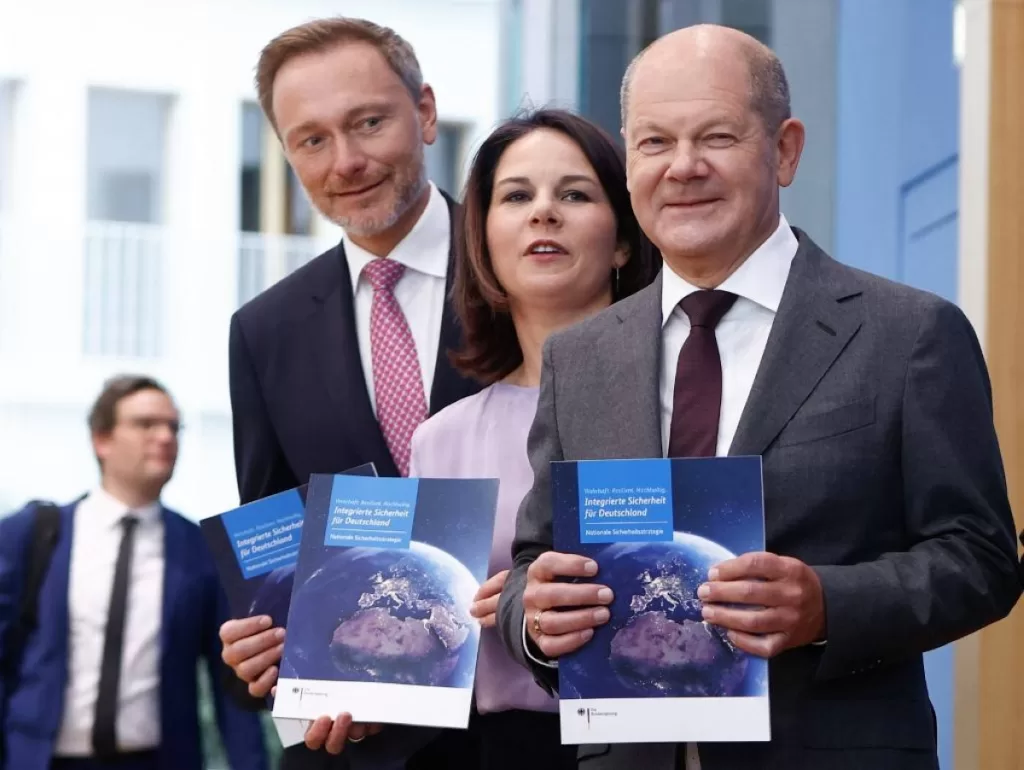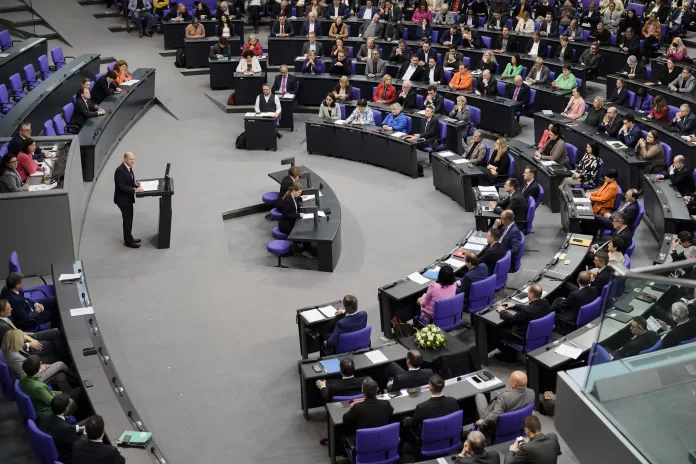The changed pattern of contemporary power politics and the outbreak of the Ukraine war between the United States and Russia have changed the standings of various states in their respective regions. The outbreak of war between two major powers has again compelled the governments of various states to formalize their defence postures against the emerging challenges of great power politics. Germany’s recently launched first National Security Strategy is an appropriate example of this argument because this policy has mentioned the significance of the Ukrainian war for the European region. The formal document of the policy highlighted the changing nature of the international system where the rising new power centres and the role of multipolar forces of the twenty-first century have become undeniable developments of the contemporary world.
In the domain of human security, human-induced climate changes have raised serious questions on people’s livelihoods, as mentioned in the introductory pages of this policy. The human-induced climate change has connected with the stability of all the states located in different regions. In the message of the Chancellor of the Federal Republic of Germany, the first page of this policy document Integrated Security for Germany: Robust, Resilient, Sustainable, highlighted the primary goal of the policy, which is to maintain the security of German citizens while making a substantial contribution in Europe’s Security. The Chancellor, Olaf Scholz, mentioned in his message that the German government has broadened the concept of security in which the country is determined to secure the supply of major energy lines and raw materials, which is the cornerstone of ongoing collaborations of Germany with the states of diverse regions such as Asia, Africa, and America. Trade is the central point of Germany’s emerging foreign relations with different states, and German leaders are committed to formulating their cooperative partnerships with different states while realizing the prominently leading role of Germany in its home region. The policy acknowledged the collective strengths of Germany’s relations with the outside world, which has resulted in friends, partners, and allies across the globe.
Aligned with the message of the Chancellor, various other state officials cleared the vision and objectives of the model introduced by Germany of integrated security; the Federal Minister for Foreign Affairs mentioned the nature and importance of this policy for the German government in which the government has realized the potential of ongoing traditional and non-traditional security threats. The Federal Minister for Foreign Affairs, Annalena Baerbock, stated: “Making us more robust in all areas of life is the aim of this our first National Security Strategy”. Minister Baerbock’s message highlighted Germany’s leading role in the European region while citing the strong association of Germany with the history of the European region, which poses special responsibility to Germany in shaping the future of Europe. The fundamental concern of the contemporary security mindset of Germany is to contribute more to the continental security of the European region.
Apart from mentioning the positions of NATO in Europe and the outbreak of the Ukrainian war under the traditional domains of security, the non-traditional areas of security highlighted the German nation’s vulnerabilities such as the pandemic crisis, cyber-attacks, and various disinformation campaigns. The response of formal architectures of the country’s first National Security Strategy to the emerging security challenges in the form of Integrated Security is the start of Germany’s formal documentation of Integrated Security, which will try to achieve the desired outcomes in future. The adopted Integrated Security model primarily shows the government’s commitment to addressing all spectrums of threats through a comprehensive security framework.
This framework is designed to develop collaborative interaction with all the actors, resources, and instruments in an exceptional combination. The formulation of this exceptional combination could be comprehensively effective in guaranteeing the security of the German nation, parallel to enhancing the country’s strength against potential external threats. Thus, the designed framework of the adopted policy has the protection of the country as a guiding principle which is further linked with the protection of Germany, its free democratic political order and the values of the German nation.
The concerns with the international system showed the commitment of German leaders to supporting the free international order based on the core values of international law and the Charter of the intergovernmental framework of the United Nations. Through Germany’s foreign and security policy, the German government is showing its adherence to the cooperative values of the contemporary international system.

The actual strength of German’s foreign relations has been discussed in the policy document by referring to the positions of neighbouring nations in which France enjoys a cooperative interaction and close friendship with Germany because both territorially adjoining nations have improved their relations by overcoming the historical estrangements in bilateral relations. The improved relations of both nations proved to be a major contribution to the regional integration model of Europe. The relations with the world beyond neighbours emphasized Germany’s close cooperative ties and partnership with the United States.
The potential of German’s largest economy in the heart of Europe has been confirmed in the formal document of the National Security Strategy while emphasizing the special responsibility of the German nation for upholding the values of peace, security and stability. The interesting points of this policy are the focus on the Ukraine war and the issue of Israel’s legitimate existence internationally because the policy document mentioned that the German government plans to continue taking responsibility for Israel’s right to exit. The broader concept of security has been associated with the security of the country, which could be separated from the multilateral frameworks of NATO and the EU. In other words, the national security tendencies of Germany focus on the multilateral territorial and extra-territorial organizational frameworks of the international community. Moreover, the upgradation of the role of Bundeswehr in ensuring the country’s security is one of the few gravitational points of the launched security document, which explains the core tasks of Bundeswehr – national and collective defence. The Bundeswehr has been recognized as the guarantor of Germany’s deterrence and defence capability. In the non-traditional domain, the adopted model of Integrated Security underlined the efforts to bolster investments in the critical-infrastructure protection, cyber capabilities, effective diplomacy, civil protection, stabilizing partnerships, and dedicated humanitarian assistance and development cooperation.
The formal launching of this seventy-four-page National Security Policy document has cleared Germany’s vision for managing its mainstream security challenges by introducing a unique model of Integrated Security with the objective of integrating national security with the security of other regions of the world. In this way, this policy has provided a clear path to the security of the German nation against the complex nature of future challenges. Now, the future directions of Germany’s foreign relations and the mainstream management of foreign relations will determine the implementation of this policy in the appropriate directions. The brief declassified document of this policy released on June 14, 2023, is merely a document showing Germany’s high ambitions and progressive future plans; that is why it is quite difficult to rate this newly adopted model of Integrated Security at any level.





